Daniel Kinahan, (right) poses with boxer Tyson Fury
In Irish folk tales, leprechauns sometimes offer strangers a pot of gold, normally to be found at the end of a rainbow, from where, of course, it can never be retrieved. Leprechauns mess with people’s minds, too. If you want to play with the faeries in real life, of course, there is always a pharmaceutical means of getting to fairyland, and it is apparently being exploited by ruthless and murderous Irish gangsters. Those who cross them in any way tend to end up dead, rather than merely confused. They never find the pot of gold, either; all the gold is being claimed by the Irish gangs who are exploiting the COVID pandemic to smuggle tonnes of South American cocaine into Europe, along with weapons, now that small-scale air couriers are no longer practical. The weapons are used in the way in which gangsters have always used them: to further their aims of making a lot of money while snuffing out any competition. None of this is likely to attract tourists to the Emerald Isle.
The man allegedly at the top of this criminal activity in Ireland has never been charged and denies any criminality, although he has been named in the Dáil and in a Dublin courtroom as a criminal gang boss. Daniel Kinahan is a boxing promotor and widely believed by police forces across Europe and around the world to head a criminal syndicate worth some $2-billion (€1.66-billion). In pursuing this illicit and unpleasant endeavour, he and his younger brother are following a family tradition; following in his father’s footsteps, you might say, by assuming the leadership of the drug smuggling gang his father created. Daniel Kinahan was initially praised by controversial heavyweight boxer Tyson Fury, known as ‘the Gypsy King’, for arranging his world title fight with Anthony Joshua. In a 55-second video, Fury named Kinahan three times, which may not have had the effect Kinahan wanted, as it drew attention to the sport’s links with a man alleged to be one of Europe’s foremost mobsters and inevitably involved with drugs, guns, murder and mayhem. Real boxing fans and those associated with it as a serious sport would love to see Kinahan’s links with it expunged. Not all of them, though, perhaps: there are plenty of photographs of Kinahan chatting amiably with big-time boxing promotors like Frank Warren’ while others in the sport have said the police should leave this “honest businessman” alone. Incidentally, the “Gypsy King” title was self-chosen and it is unlikely to endear him to the Roma community from which he claims descent because most Roma see the word “gypsy” as derogatory.
What really brought Kinahan to public notice, as opposed to just the forces of law and order, was his long feud with one of his syndicate’s rivals, the Hutch Gang, which reached a climax in February 2016 at the Regency Hotel in North Dublin. A weigh-in was being held there before a tournament that Kinahan’s promotion company was organising. Suddenly, all hell broke loose and shots were fired while men disguised in the uniforms of the Emergency Response Unit of An Garda Síochána, the Irish Police, but carrying Kalashnikovs, guarded the entrance. More shooting followed and one of Kinahan’s known associates, David Byrne, was shot dead. The attackers were there to kill Kinahan and were claimed to be led by Patrick Hutch, whose brother Gary, a former close associate of Kinahan, had been murdered. Patrick Hutch, unsurprisingly, blamed Kinahan for that but although he was arrested over the shoot-out, Hutch’s trial subsequently collapsed. Even so, the exchange of gunfire, in which innocent bystanders were endangered and forced to run for their lives, has given the Gardai the necessary excuse and the required resources to look into the business methods of seemingly-honest people involved in the dirty trade of drug smuggling and supply.

Meanwhile, Kinahan’s organised crime group, seemingly run by him from his home in Dubai but with his younger brother, Christie junior, as a lieutenant, has been described by the head of the European anti-drugs smuggling agency as “one of the biggest threats to law and order in Ireland”. Michael O’Sullivan, the former Assistant Commissioner of the Garda who now runs Europe’s Maritime Analysis and Operations Centre for narcotics – MAOC (N) – is keen to keep up the long battle against Kinahan’s assumed smuggling operation.
In February, law enforcement officers seized a ship carrying an astonishing 9.5 tonnes of high-purity cocaine with an estimated street value of some €800-million. The vessel was boarded while docked on the island of Cape Verde following a tip-off from MAOC. MAOC was also involved in the seizure of a yacht on its way to Britain from South America carrying 1.4 tonnes of cocaine. The five British men who were in charge of it were sentenced to a total of 120 years in prison.

The organisation was also involved in other successful operations, such as when, in an unprecedented joint operation with the Brazilian Federal Police and with operational support from the Brazilian Navy, a sailing vessel was intercepted off the coast of Recife, Brazil, resulting in the seizure of 2.2 tons of cocaine and the arrest of 5 crew members.
The intimidation and murders of teenage street sellers and the way in which teenage girls are lured into prostitution to fund their habits doesn’t bother them; they’re just collateral damage.
There have been claims made that Kinahan is backing away from the drugs trade but there’s little sign of it in reality, according to law enforcement agencies. Michael O’Toole, crime and defence correspondent for the Irish Daily Star newspaper, spoke with O’Sullivan about it and Tweeted his response to that claim.
“The Kinahan Organised Crime Group is alive and well and continuing in the drugs trade,” said the Tweet.

MERCILESS AND MERCENARY
MAOC is under the control of the European Monitoring Centre for Drugs and Drug Addiction (EMCDDA), which was established in 1993 and inaugurated in Lisbon in 1995 as one of the EU’s decentralised agencies. MAOC, or MAOC (N) in its anti-narcotics mode, is an inter-governmental working group or taskforce comprising six EU Member States: Spain, France, Ireland, Italy, the Netherlands, Portugal plus the UK (apparently still part of MAOC, if not of the EU) and it was set up to tackle maritime drug smuggling in Europe. Last year, MAOC helped to seize drugs worth around €1.5-billion aboard ships bound for Europe.
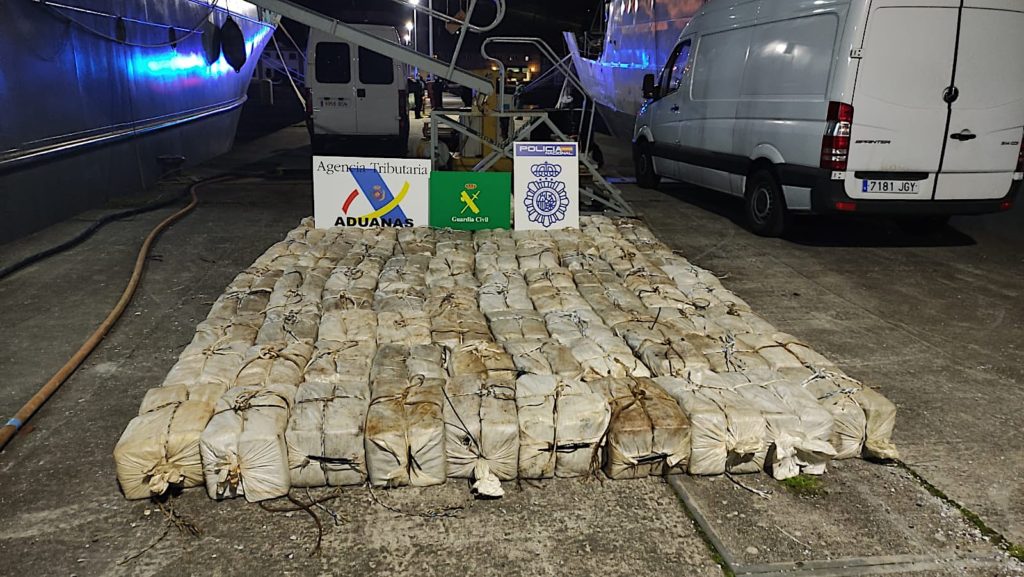
Kinahan and his ilk are clearly very wealthy but losses as substantial as that must cause them some unease, surely? O’Sullivan has described Kinahan’s father Chris, also a drug dealer, as “a real mercenary”; otherwise how does somebody who doesn’t have a heroin addiction become involved in one of the world’s most destructive forms of criminality? It seems that the same epithet applies to Kinahan Junior. His attitude towards rivals, even those who have been his friends and lieutenants, suggest he has shown little mercy. His only love is for money, it has been claimed, and he has brought inter-gang warfare to the streets of Dublin and other cities across Ireland and the rest of Europe, even resorting to such terrorist-style acts as the use of car bombs to enforce his dominant position.

Kinahan comes from a criminal family, although that in itself is strange. Despite apparently middle-class origins, his father, Christie Kinahan, chose the drugs trade after a spell as a fraudster. Criminality appealed to him; it was a lifestyle choice.
He was arrested several times and has served time in prison, in Ireland, the Netherlands and Belgium, before moving abroad to avoid further problems with An Garda Síochána, the Irish police. Like father, like son, as the saying goes, although Daniel Kinahan has never been arrested.
Dubai is said to be considering his extradition, however (even if deportation seems a more likely outcome) because of all the international police interest in his activities.
Police forces in several countries are investigating him and Garda Headquarters is now liaising with the US Drug Enforcement Agency and the Federal Bureau of Investigation on how best to pursue the 43-year-old.

Despite his seemingly cosy relationship with leading figures in the boxing world, including his official rôle as advisor to famous American boxing promotor Bob Arum, who runs Top Rank, and to his own MTK promotions company, he and 27 other members of his syndicate are banned from entering the United States. Arum described Kinahan as “an honourable man”, but US authorities told him not to bother applying for an ESTA (Electronic System for Travel Authorization) visa, the kind usually used by visitors to the country.
According to the Sun newspaper in Ireland, the Kinahan syndicate has been placed on a list of narco-terrorist gangs compiled by both the Drug Enforcement Administration and the FBI in the United States, alongside Mexican and Columbian cartels.
The Sun Ireland, a newspaper, quoted one US investigator: “The name of Daniel Kinahan is known to law enforcement agencies all over the world thanks to the murderous activities of the Kinahan cartel.
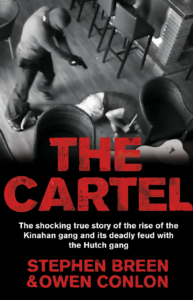
They are operating on a global scale and their members and associates will not be admitted to the United States.”
And just in case anyone thought the US wasn’t being serious, he added: “Mr Kinahan might not have any convictions but he’s been named in various jurisdictions because of his connections to organised crime.
If he’s brave enough to apply for an ESTA he will be turned down.”
DANGEROUS LIAISONS
According to an old Japanese proverb, “when the character of a person is not clear, look at their friends.” It was also written by that famous Greek writer of fables, Aesop, some 2,600 years ago: “A man is known by the company he keeps.”
Kinahan’s friends would seem to leave much to be desired, but then perhaps they should be wary of being associated with him, too. After all, it’s been estimated that the Kinahan syndicate could be responsible for up to a third of Europe’s cocaine market and is increasingly using violence to shore up the criminal organisation in the face of increasing attempts at competition by other gangsters. An inter-gang war that began in Ireland with the feud between Kinahan’s mob and their rivals, the Hutch gang, run by Gerry “the Monk” Hutch, has now spread across Ireland and the rest of Europe.
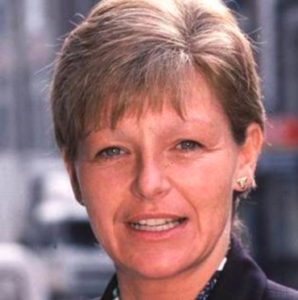
Hutch was given the nickname “the Monk” because of his ascetic lifestyle after leaving prison, but the investigative journalist who first called him that, Veronica Guerin, was later murdered.
No-one in Ireland can even make jokes about the country’s leading mobsters. Hutch, however, is now said to be anxious to come out of hiding and return to Dublin after spending the five years since the Regency Hotel attack in hiding, both from the Gardaí and from members of Kinahan’s gang, seeking revenge.
Clearly Hutch is not one of Kinahan’s friends (although his murdered brother once was), but Kinahan does have close links with some other very dubious characters, such as “Fat Freddie” Thompson, a convicted gangland killer, as well as with the well-known and notoriously chubby mobster Naoufal “Belly” Fassih. Fat Freddie Thompson and another Kinahan associate,Thomas ‘Bomber’ Kavanagh are now in jail and other gang members are on the run.

As it was written in the Ecclesiasticus section of the biblical Apocrypha, which would be familiar in Roman Catholic Ireland, even if it is not accepted as ‘holy writ’ by Jews and Protestants, “He that toucheth pitch shall be defiled therewith; and he that hath fellowship with a proud man shall be like unto him.”
Judging by his reactions to media coverage and his intent to “sport-wash” his name, as one newspaper reported it, the pitch part is all too real, and it seems the “proud man” title fits Daniel Kinahan, too.
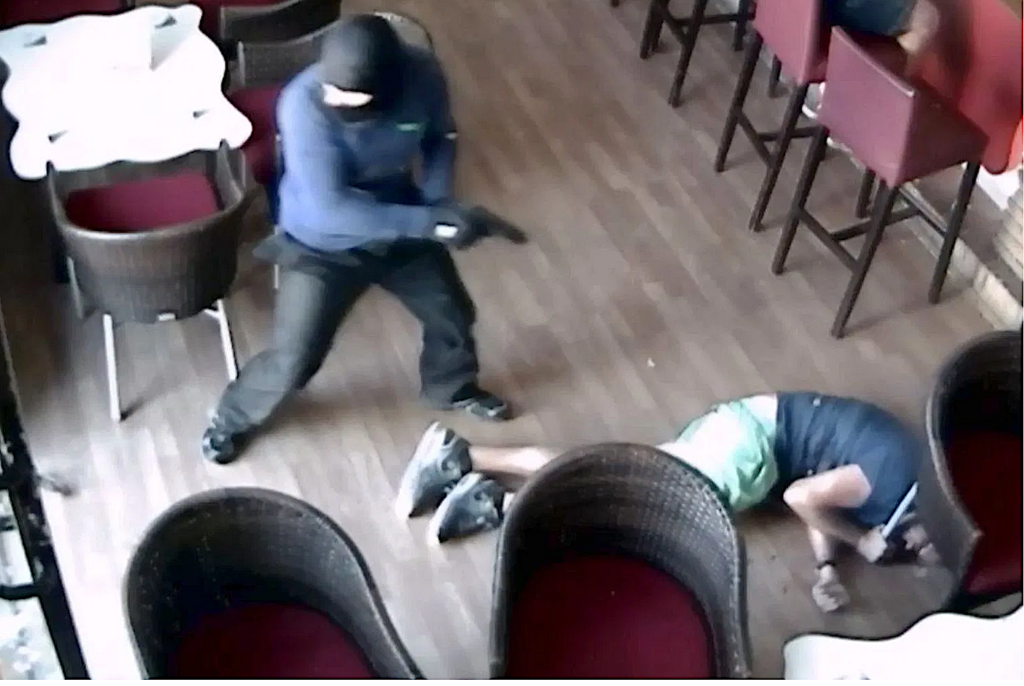
Kinahan has lashed out at the Media, especially at the BBC for a Panorama television programme exposing the corrupt involvement of the mob in boxing. Kinahan pointed out that he had never been arrested (his lawyers repeated this statement, saying that all allegations against Kinahan are false and lack any evidential basis) but said he could never get a fair trial in Ireland because of “the media”, which often gets the blame for exposing real crimes. It is a strange fact of life that many people who choose to live their lives in the public eye, the ‘glare of publicity’ and of what they hope is public adoration later blame the media on which their lifestyles have depended for any negative publicity that emerges.
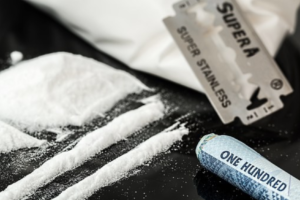 “It’s the fault of the media,” is a popular cry from many of those with pots of money and a shallow taste for ‘bling’, even those with impressive, dare I say even ‘royal’ titles? However, it makes you wonder why so many law enforcement agencies believe the stories about Kinahan, too, because they certainly seem to.
“It’s the fault of the media,” is a popular cry from many of those with pots of money and a shallow taste for ‘bling’, even those with impressive, dare I say even ‘royal’ titles? However, it makes you wonder why so many law enforcement agencies believe the stories about Kinahan, too, because they certainly seem to.
It seems unlikely that he would be prohibited from setting foot in the United States on the basis of an article or two in an Irish tabloid newspaper. The plain fact is that while the on-going gang war has been terrorising the people of Dublin and other cities, the influx of illicit drugs has been wrecking society and damaging the Irish economy.
The economies of other European countries have been damaged by the cocaine trade, too. Nobody except the criminals benefits financially from large-scale drug smuggling and dealing.
That could change, however: one courageous member of the Dáil, the Irish Parliament, wants the seized assets of criminal gangs to be used to improve society and to help fight the mobsters. Neale Richmond of Fine Gael thinks the seized funds should be ring-fenced for anti-crime measures. During 2020, police seized more than €16-million in cash, more than double the previous year’s total. “These cash seizures are on top of seizures of property and luxury good likes motor bikes, jewellery and artwork that will be sold at auction,” Richmond said. “We are seeing huge success in taking the proceeds of crime, but we need to see these proceeds ploughed back into early intervention services, youth diversion programmes, community policing and addiction services to target criminality at source.” Richmond tabled a series of Parliamentary questions to the ministers for Public Expenditure and for Justice in Ireland, pointing out the advantages of taking the gangsters’ ill-gotten gains and using them to help fight the war against organised crime.

Richmond has also written to UK television stations, explaining Kinahan’s criminal activities and his deep involvement in boxing, which he is said to rule through fear, coercion and bullying.
“I welcome the comments from the Minister of State, Deputy Griffin,” he said in the Dáil, “that he has communicated with the British authorities and with the broadcasters. There is a lesson for the international press, in particular, to make sure it looks through the full details of what is going on in respect of the fight preparation and who is involved.
I hope to see a change of tone and a bit of education.” I wish him luck with that; however loudly and clearly a politician speaks, money talks louder and often proves to be more persuasive.
Few who make accusations about Kinahan’s ‘business methods’, incidentally, are willing to be named; they have seen what happens to those who cross Kinahan or his cartel.
CATCHING THE FISH
First, of course, the Gardai (or another law enforcement agency) must catch Kinahan, who has never faced an Irish court, despite being wanted in connection with three murder plots, with the Dublin Special Criminal Court accepting evidence last summer that Kinahan’s gang had carried out what were called ‘execution-style’ murders as well as trafficking in drugs and firearms. As the 1747 book “The Art of Cookery Made Plain and Easy”, written by Hannah Glasse, says about a recipe for carp, “First catch your fish.” That’s a disputed quote, by the way; some say the phrase initially appeared as “First catch your hare”. But catching Kinahan won’t be easy, especially if he is allowed to go on running his empire from Dubai.

Looking back, it’s strange how he and Hutch chose such different but equally felonious routes. Back when they were first friends and neighbours, he and Kinahan’s father Christie laundered money and dealt in stolen cheques, helping each other.
But while Kinahan was heavily into drug dealing, Hutch didn’t approve. Armed robberies were his area of interest and expertise. It may seem like a strange kind of morality but it is, perhaps, part of the reason why Hutch acquired the subriquet “the Monk”.
But Hutch’s nephew, Gary, threw in his lot with Kinahan instead of his uncle and moved to Spain to become Daniel Kinahan’s lieutenant, passing his boss’s instructions on to the ‘lower ranks’.
Kinahan had also set up a gym and a boxing management company in Marbella, with Birmingham-based boxer Matthew Macklin as its front man. The gym, known as MGM (Macklin’s Gym Marbella) attracted serious fighters, as well as thugs and crooks and a few keen amateurs. The operation even attracted leading British boxing promotors Frank Warren and Eddie Hearn.
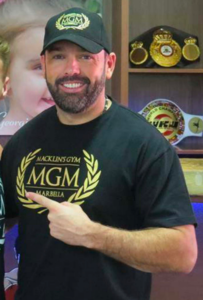
Even so, criminality seemed to cling to whatever Kinahan did; boxing trainer Jamie Moore was shot in the leg at Kinahan’s house.
He survived, but it seems he was not the intended target. The gunmen had been after Kinahan and Gary Hutch was suspected of organising it. A month later, another gym regular was shot. In 2014, Gary Hutch was suspected of having turned informant as well as organising the attack on Kinahan.
As TheJournal.ie reported, “He fled Spain when it emerged that Kinahan had survived.” An attempt was made, the news site reports, to calm things down. “Gerry Hutch attended various meetings with the Kinahan gang to work out a ‘peace deal’ – it is understood cash was paid in return for the cartel’s word that Gary would not be targeted.” Perhaps a gangster’s word is not to be trusted; he was shot dead soon afterwards in what turned out to be one further murderous step towards a deadly gang war.
It spread fear through a part of Dublin and has left 18 people dead so far.
MONEY FOR OLD ROPES
It is true that Kinahan’s firm have poured money into boxing. MTK has signed some of the world’s top boxers, often luring them away from long-established management companies. To sign up so many promising world-class fighters requires a lot of money and suspicion has been growing that it comes from Kinahan’s drugs cartel. There is even a lawsuit pending in California that MTK receives funds from Kinahan in some way, although MTK says they will strongly fight any such allegation in court, if it gets that far. Unfortunately, wherever Kinahan is in the world, his enemies tend not to have long life expectancies. People involved with his MTK promotions agency readily admit that Kinahan still advises boxers, as he did Tyson Fury, even while MTK itself vigorously denies Kinahan is involved in running the firm. MTK also, of course, denies that it’s drug money that has funded its meteoric rise. Officially, “Kinahan has left boxing”.
Kinahan’s lawyers have stressed that he has “no criminal record or convictions” and describe the many, many claims of his involvement in large-scale drugs smuggling as “wild allegations”. Of course, they also say he is not a crime boss, even though a large number of the world’s law enforcement agencies are certain that he is. His close ties to boxing were clearly revealed in the Tyson Fury video, and that revelation did Kinahan no good, according to TheJournal.ie. “Diplomatic missives were sent from Ireland to the Middle East and within days, KHK Sports, the Bahraini combat sports firm, cut ties with its recently hired ‘special advisor’ Daniel Kinahan,” the website explained. “KHK, which was established by the son of Bahrain’s king, announced it would no longer engage his services.” Even princes have an aversion to touching pitch.
Neale Richmond has written to the government of the United Arab Emirates, warning them what Kinahan represents and urging them to protect their citizens, as well as boxing fans, from his allegedly malign influence. The Irish Gardaí have even set up a bureau in Dubai to gather information but Kinahan remains free, although many of his associates have been seized. It’s been hinted that the information gathering on Kinahan is continuing and the longer he is at large the more likely he is to implicate more of his ‘business associates’.
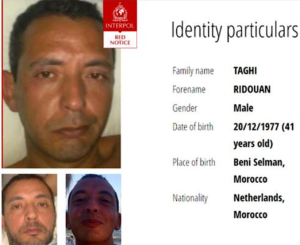
As it is, one of his contacts, Ridouan Taghi, was arrested by Dutch police last December and flown to the Netherlands to face trial. He was wanted on international arrest warrants for murder and drug trafficking. He had been linked to the murder outside Amsterdam of the Dutch lawyer representing a state witness in a case brought against him. He was also linked to a Europe-wide drugs cartel associated with Kinahan and his father.
Boxing has long historical links with gangsters. In 1927, the long-anticipated rematch between Gene Tunney and Jack Dempsey was moved from Chicago to Philadelphia because Dempsey had heard that Al Capone was one of his fans and, it’s claimed (although never proved) that he didn’t want Capone to be involved in the match, especially as he had bet $50,000 on a Dempsey win. The fight has been called the “long count” fight, because under new rules, to which both fighters had supposedly agreed, when one man was knocked down his opponent had to stand in a neutral corner, away from his trainer, before the count could begin. Having knocked Tunney onto the canvas, Dempsey refused, so the referee couldn’t start the count. Dempsey moved eventually but the count started very late and by some reckonings, Tunney only got to his feet after thirteen seconds had passed. Later in the match, the referee started the count immediately after Dempsey had been knocked down, despite Tunney not going to a neutral corner.

Was it a fix? After so long it’s hard to be sure, but there’s no doubt that Capone fixed fights so as to win money. It’s a violent sport and it tends to attract violent men to its fringes. Whatever really happened that day, Tunney and Dempsey became firm friends and visited each other later in life. Capone, of course, was jailed for tax evasion. He eventually died in Florida of a heart attack while suffering from paresis, a late stage of syphilis affecting the brain. No-one, as far as I can discover, has accused Kinahan of fixing fights upon which he or his associates had placed bets. He seems to have a genuine affection and respect for the sport. He is also said to be very much a family man with five children, so he has little to fear from paresis.
He is also very determined to hold on to what he considers his. According to the Irish newspaper SundayWorld, the Kinahan cartel has been bombarding Spanish court officials with demands for the return of assets seized during Spain’s unsuccessful crackdown on organised crime. Kinahan and his father have successfully reclaimed the bail money paid for their release after more than a decade, they and their associates being handed nearly €1-million in cash. The money had been seized by police from Kinahan’s luxury apartment on the Costa del Sol in May 2010. Lesser charges may be preferred against both the Kinahans. The problem comes in getting people to testify. In the inner North Dublin area, one in four people admit to having faced intimidation at the hands of the Kinahan cartel but only one in five of them was willing to come forward and say so.

The Gardaí report that intimidation and open drug dealing have become the norm in some areas. But the new person in charge of the Garda Drugs and Organised Crime Bureau has warned that she will show no mercy in clamping down on drug dealing and organised crime. Detective Chief Superintendent Angela Willis, who has overseen the Bureau’s response to organised crime and, in particular, to dismantling the Kinahan gang, told SundayWorld that “nobody is outside its reach”. And she warned gang members that anyone who gets involved with a gang at any level must be prepared to spend time in prison.
SPREADING THE POISON
Ireland seems to be adopting the type of drug distribution seen in the UK, where it’s known as ‘county lines’. Young people, often from broken families or care homes, are sent out into the provinces to take orders from addicts which are then telephoned in to a central hub, from where the drugs are distributed. It means that it is usually only the youngsters, seen by the real dealers as dispensable, who attract the attention of the police and face arrest. “The provincial towns are considered attractive thanks to the direct access to local users and potentially new customers and the comparatively weak competition from local drug dealers,” according to a report by Europol, which went on to say that the phenomenon has become associated with “a range of harms, such as violence and the exploitation of vulnerable populations, including children”. Europol say the Irish drug trafficking business has three layers. At the top are the cartel bosses, calling the shots and sufficiently remote from the business to avoid police ‘interference’ in their activities. They have expensive lawyers, too. Next comes a middle tier of criminals, normally engaged in high-risk, low-reward activities, such as transporting, holding or dealing drugs, carrying guns, and conducting shootings, beatings, punishments and serious intimidation. After that, right at the bottom and with little to gain except, perhaps, access to small amounts of the drugs in which they deal, come what Europol calls “highly disadvantaged young people”. Most often, they themselves are addicts and also carry out much of the intimidation. According to Europol, their typical activities are “bullying, assaulting, stealing, vandalising and spreading fear on behalf of the network”. Even so, the ‘county lines’ of Ireland are said to be less well-developed and sophisticated than those in the UK.

The Director of the European Monitoring Centre for Drugs and Drug Addiction (EMCDDA), Alexis Goosdeel, is on record as saying “This report is a clear wake-up call for policymakers to address the rapidly growing drug market, which is increasingly global, joined-up and digitally enabled. Hyper production of drugs, within and beyond EU borders, is leading to high availability of natural and synthetic substances. This means that consumers now have access to a diverse range of highly potent and pure products at affordable prices. A mounting concern is the rise in drug-related violence and corruption within the EU.” It is certainly big business for the organised crime gangs, with Europeans currently spending some €30-billion a year on illicit drugs. In 2017, 8,238 people in Europe took fatal overdoses. Around 4-million Europeans aged between 15 and 64 admit to having taken cocaine during the last year. The EU is also emerging as a transit area for the onward transmission of drugs to Asia and the Middle East.

Now the Gardaí are investigating who was behind what is the biggest haul of cocaine in Ireland in recent years: 172kgs worth an estimated €12-million, uncovered in searches of a vessel in Ringaskiddy Port, Cork, and apparently destined for separate markets in Europe. They are checking to see what other ports the ship was due to dock in. A photograph taken of the drug shows that one of the blocks was marked with a shamrock. Could that have been Ireland’s share? If Ringaskiddy was just one port on a long route, it may suggest that another trafficking cartel was involved and not necessarily the Kinahans. According to the latest EMCDDA report, the average purity of cocaine at retail level varied from 23 % to 87 % across Europe in 2018, with half the countries reporting an average purity between 53 % and 69 %. The report explains: “Among those countries consistently providing data on purity and price, the purity of cocaine has been on an upward trend over the past decade and in 2018 reached a level 44 % higher than the index year of 2008. Over the same period, the retail price of cocaine has remained stable. Considered along with the seizure data, these indicators suggest that cocaine availability in Europe is at an unprecedented level.”
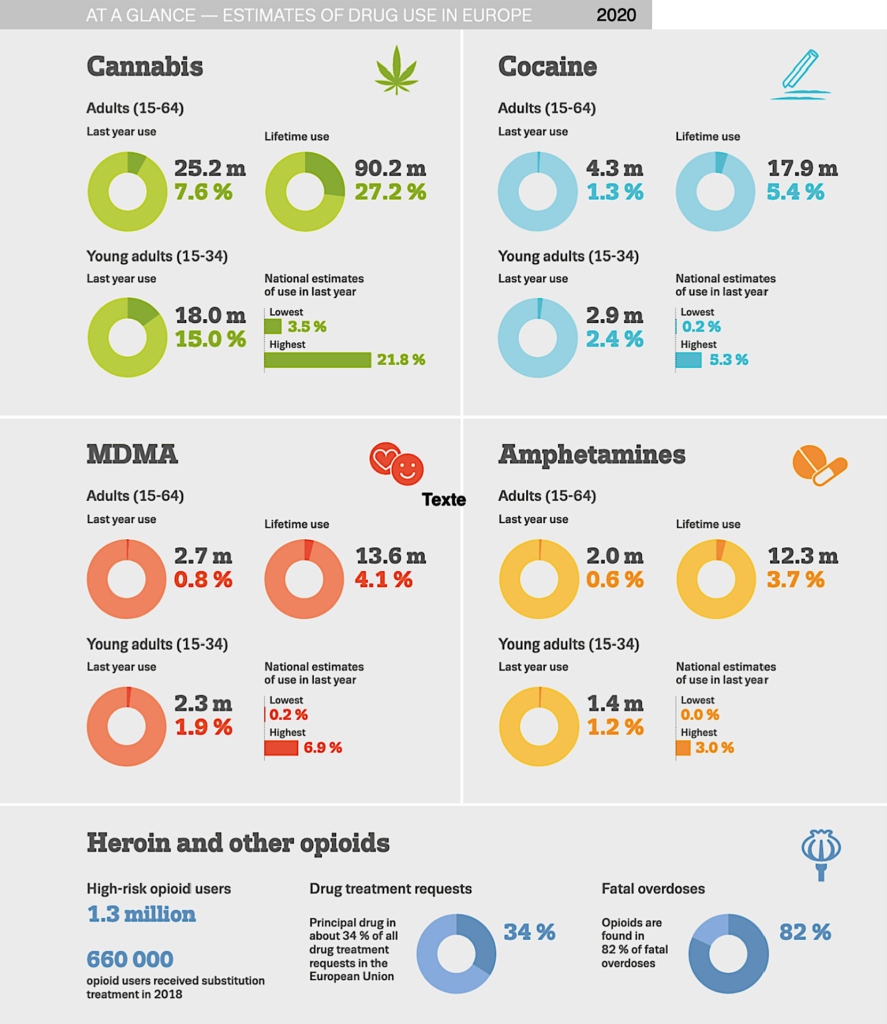
If I can express it in boxing terminology, it looks as if the long war between the Kinahan cartel and the forces of law and order could go the distance without any knock-out punches being delivered. And even if they succeed in taking him (and his father and brother) down there will be another challenger stepping into the ring straight away in an attempt to claim his winner’s belt. In any event, the Irish economy – especially its vital tourism industry – is likely to be the loser.

